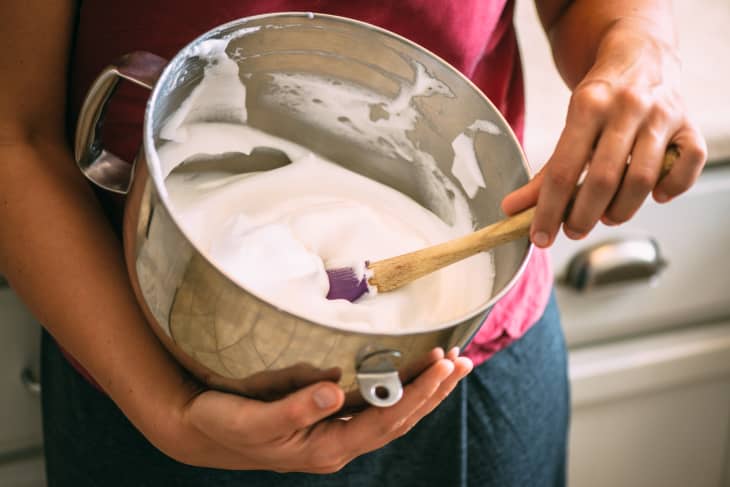Aquafaba, the Most Magical Egg Replacement (and How to Use It)
That liquid hiding in your can of chickpeas is the magical egg replacement vegans and non-vegans alike are going crazy about. Aquafaba, the drained chickpea liquid in a can or a pot of cooked beans, can be whipped like egg whites into meringue or swapped out for eggs entirely in baked goods.
So how to start using it? You just need to know the simple formula to swap out one unexpected ingredient for the other.
How to Use Aquafaba as an Egg Replacement
You can use aquafaba to replace eggs in many forms. Sometimes it’s used to replace egg whites; sometimes the whole egg in, say, a quiche. Here’s what you need to know to use aquafaba as an egg replacement.
First, drain and reserve the liquid from a can of chickpeas. Save the chickpeas for another use and transfer the liquid to the bowl of a stand mixer or a large metal bowl if using a hand mixer.
If you’re using the aquafaba as a binder, you will have to lightly whip the liquid until foamy — not whipped. As a meringue, to make marshmallow-style sauce, or to make marshmallows, you’ll need to whip it between 10 to 15 minutes.
Recipes That Use Aquafaba
The Formula
Three tablespoons of aquafaba is equivalent to about one whole egg, while two tablespoons of aquafaba is equivalent to about one egg white. Keep in mind that a can of chickpeas yields about 1/2 to 3/4 cup of this liquid, so about eight to 12 tablespoons.
Aquafaba should ideally be the same consistency of egg whites to function as a proper egg replacement. If it seems very watery, you can thicken it slightly by simmering it on low in a saucepan on the stove until it’s reduced by about a quarter.
1 whole egg = 3 tablespoons aquafaba
1 egg white = 2 tablespoons aquafaba
